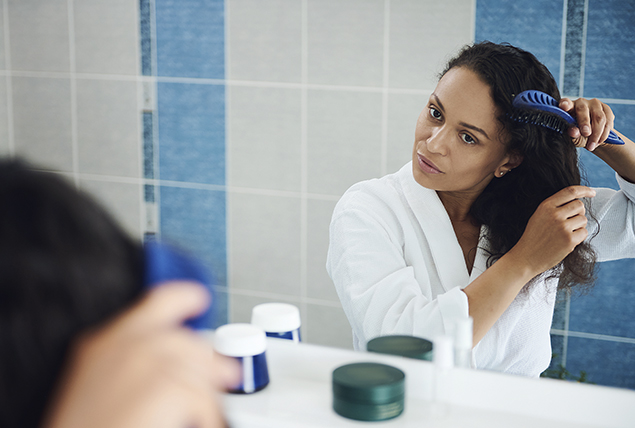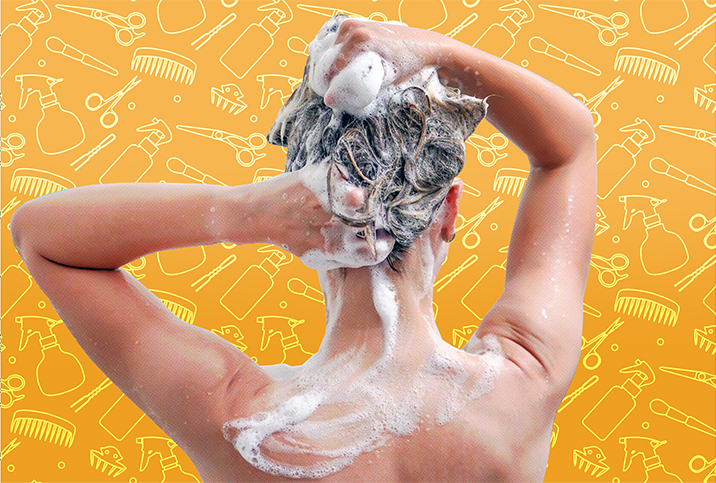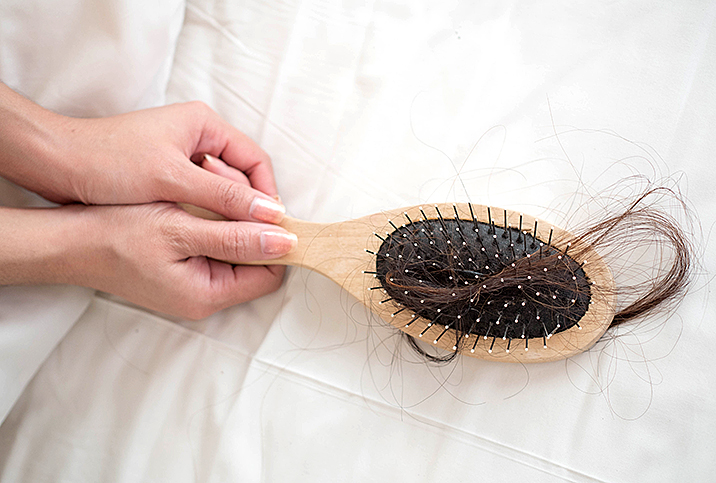Could Common Chemicals in Shampoo and Soap Be Making You Sick?

You've likely heard of volatile organic compounds (VOCs), such as ortho-phthalates or phthalates. These toxic substances aren't chemically bound to the products they are in and turn to gas over time. VOCs are used in everything from carpeting to paint.
But one place you'll frequently find phthalates (and where they don't belong) is in your self-care products. Be on the lookout for volatile organic compounds in shampoo and liquid soaps.
What are the potential side effects of VOC exposure?
Shampoos, lotions, soaps, deodorants, cosmetics and grooming products are an essential part of your personal care routine. However, some of these products may contain chemicals that could interfere with your endocrine system.
"Low-level daily exposure accumulates to cause endocrine-disrupting effects or hormone-like effects on the body," said Jill Carnahan, M.D., a board-certified family medicine and functional medicine specialist in Louisville, Colorado, and the author of the book "Unexpected."
Scientists and doctors have warned about endocrine-disrupting chemicals (EDCs) for years. Studies suggest exposure can contribute to infertility, cancer, genetic mutations and hormone disorders.
"These ingredients have chemical structures that mimic our natural hormones. When consumed or absorbed into our skin, they override our internal controls and shut down our own hormone production and actions," said Elena A. Christofides, M.D., a board-certified endocrinologist in Columbus, Ohio.
Women are at a higher risk of exposure due to their frequent use of a large number of personal care and cosmetic products containing these troublesome chemicals.
What is a potential problem with phthalates?
One common chemical in personal care items, phthalates, helps synthetic fragrances last longer. But studies have linked them to adverse reproductive and pregnancy outcomes, breast cancer and diabetes.
Phthalates can potentially increase the risk of type 2 diabetes by 30 percent to 63 percent in women, according to a 2023 study published in the Journal of Clinical Endocrinology and Metabolism.
For six years, the researchers analyzed the concentration of these potentially harmful chemicals in the urine of 1,308 women. They indicated that above-average concentrations increased the risk of diabetes—about 5 percent of the women developed diabetes in the study period.
"People are exposed to phthalates daily, increasing their risk of several metabolic diseases. It's important that we address EDCs now, as they are harmful to human health," said one of the study authors, Sung Kyun Park, Sc.D., M.P.H., of the University of Michigan School of Public Health, in a media release.
Synthetic compounds can remain for many years in your body and disrupt normal hormonal cycles beyond just the day you consume the harmful ingredient, Christofides said.
"For women in particular, having external chemicals interfering with your own hormones for years can have long-lasting consequences for all your internal organs, but especially your ovaries, uterus and future fertility," she added.
"This disrupts the signaling of our endocrine-hormone system and can cause glitches like irregular cycles or heavy periods or worsening premenstrual symptoms in women or low libido, weight gain or depression in men," Carnahan said.
What products contain phthalates?
"Phthalates are a group of substances mainly used as plasticizers, added to polyvinyl chloride plastics to soften them," Carnahan said.
You can find phthalates in a range of products that may include:
- Children's toys
- Car interiors
- Electronics
- Baby food and formula
- Personal care products
- Cosmetics
- Perfumes
- Air fresheners
- Household products
- Food containers
"Best to avoid anything made with soft plastic, especially in children where they could chew on products," Carnahan said. "For men and women using personal care products, check the label."
What are the symptoms of VOC exposure?
"Have you ever heard the parable about a frog slowly boiling in a pot without realizing it was getting hot? These low-level exposures accumulate and may not be obvious until they cause serious health issues," Carnahan said.
She added that most people usually attribute symptoms to other causes unrelated to the toxins in these products, not realizing that it is due to the accumulation of repeated exposure. The effects may be subtle at the beginning.
"Exposure over time has been linked to lower IQ in offspring of infants with mothers exposed to phthalates in utero and linked to diabetes, obesity and insulin resistance in adults," Carnahan said.
What are easy ways to reduce your use of toxic chemicals?
Reducing your exposure to toxins such as phthalates is tricky. They are used in so many products. Start slow with small changes. Gradually clean out your cabinets and replace those items with better-for-you options.
"I think that consumers, in general, are becoming more educated about the potentially harmful additives that are widely present in our personal care products," Christofides said. "Many companies are now offering clean products which have reduced ingredient lists to compete with newer, smaller companies making a splash in this arena."
"Most phthalates have a short half-life and are excreted in urine and stool, so avoidance is the best solution," Carnahan said.
The most vulnerable areas of your body are the skin and mouth. Pay attention to the labels of your favorite hair and scalp products to see if they contain phthalates. Check your cosmetics, too.
If you find chemicals in soap, hair dye and your other items, see if you can find natural products to swap with them. It's an easy way to start taking care of your body.
Carnahan and Christofides also recommend reviewing the classification of products on the Environmental Working Group and Endocrine Society website database.
The bottom line
Toxic substances can cause a host of potential health problems, but these conditions won't occur overnight. Pay attention to the labels of hair care products like shampoos and conditioners, styling products and cosmetics.
If you experience skin irritation with any product, discontinue use and contact your doctor.


















